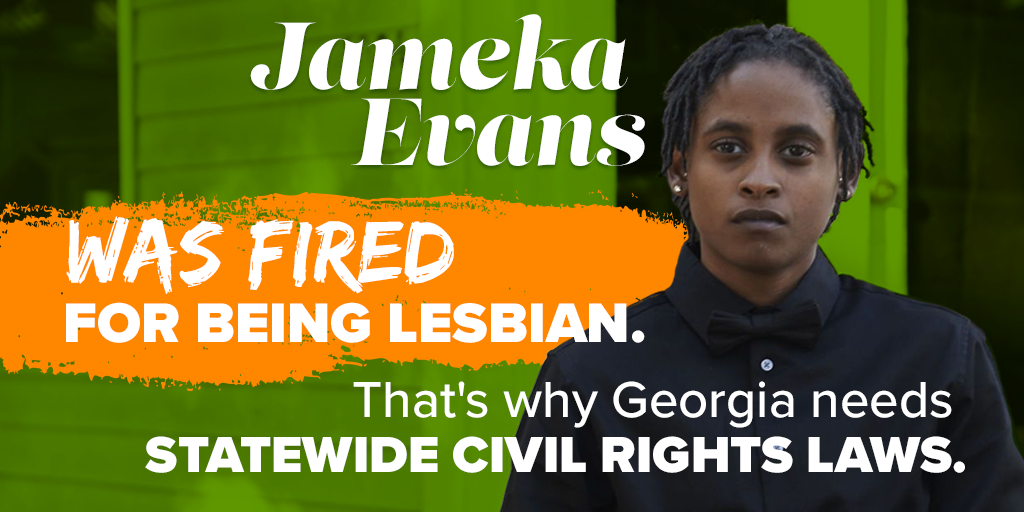Last Friday the U.S. Eleventh Circuit Court of Appeals ruled against Jameka Evans, a Savannah security guard who was fired for being lesbian.

Lambda Legal represents Evans and argued that she should be protected from discrimination under Title VII of the Civil Rights Act of 1964, which prohibits discrimination on the basis of sex.
The court dismissed these claims. Now, Lambda Legal plans to seek a rehearing by a full panel of Eleventh Circuit judges.
Jameka’s case points to an unfortunate reality: In Georgia, LGBT people can be fired, evicted, and denied service—just because of who they are—and under state law they have no legal recourse.
What’s more, federal non-discrimination laws are patchy at best. And, in Jameka’s case, they simply are not enough.
This is why statewide civil rights laws are needed in Georgia. Right now, Georgia is one of only five states with absolutely no non-discrimination protections at the state level, according to a recent report Liberty and Justice in Georgia.
Joe Whitley, a Bush- and Reagan-era attorney and a contributor to the Liberty and Justice report, penned an op-ed last week pushing for statewide LGBT-inclusive non-discrimination protections: “The gap in Georgia laws does not reflect our values. Further, it does not align with the many other steps Georgia has taken in recent years to ensure our economy stays as strong and innovative as possible.”
This year, lawmakers took important first steps to addressing the problem of LGBT discrimination in Georgia with the introduction of several non-discrimination bills. And right now, there is still time to advance HR 404—legislation that seeks to create a study committee to investigate the need for laws to protect LGBT Georgians from discrimination in housing, employment, and public places.
This is just the beginning of an important and ongoing conversation about ensuring LGBT people have fair and equal opportunity to work, find housing, and participate fully in public life. And a study committee would go a long way to building momentum for the passage of comprehensive and inclusive non-discrimination laws—and toward ensuring no one has to experience the kind of discrimination that Jameka faced at work.
SHARE THIS STORY


 @GeorgiaUnites
@GeorgiaUnites